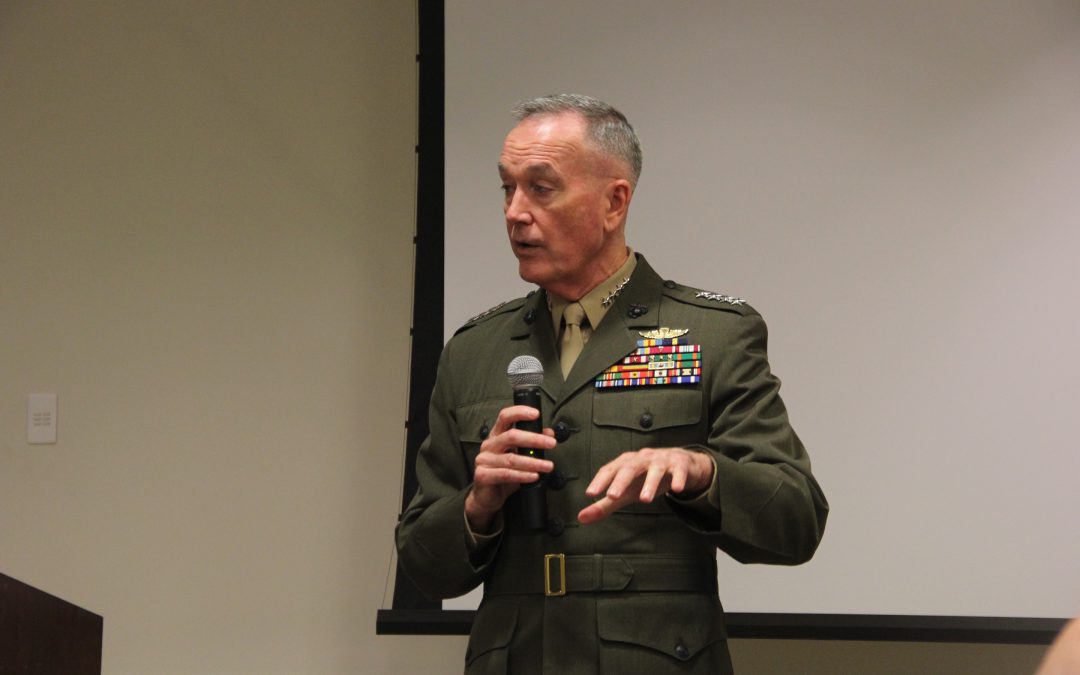ARLINGTON, Va. — Gen. Joseph Dunford, chairman of the Joint Chiefs of Staff, told reporters Friday that along with troops, the military could deploy helicopters, and logistical and engineering support to the U.S.-Mexico border.
His remarks came amid reports the United States was considering deploying troops in response to a group of migrants heading north through Mexico in order to claim asylum in the United States.
Dunford said the military’s response to the group of migrants will take shape in the coming hours. The chairman of the Joint Chiefs said the response might include the deployment of helicopters as well as logistical and engineering support.
Dunford confirmed U.S. Northern Command has been in contact with the Department of Homeland Security to further clarify the specifics of the U.S. response to the migrants, which President Donald Trump has described as a “caravan.”
Dunford also spoke of the challenge posed to the military by natural disasters as well as Trump’s recent decision to withdraw from a nuclear arms treaty with Russia.
Dunford said Cold War-era arms treaties should be reconsidered as the U.S. military seeks new approaches to power challenges by Russia and China. He also reiterated allegations made by national security adviser John Bolton that Russia has been in violation of the Intermediate Range Nuclear Forces Treaty since 2014 as a rationale for withdrawal from the treaty.
“We have to make sure the arms-control regimes in place don’t put us at a disadvantage to the other challenges we may face,” Dunford said.
In the wake of the recent hurricane season, he said the Pentagon must start to “think about weather as an adversary.”
While the armed forces often responds to natural disasters, they also can jeopardize the military. Last week, the Air Force reported that Hurricane Michael damaged part of a fleet of F-22 fighter jets in Florida. The storm also caused damage to the hanger housing the aircraft.
To counter increasing natural disaster, Dunford said the military must rethink how it constructs its facilities to increase their resiliency to severe weather.
“When it comes to things like hurricanes, floods, typhoons … which we can expect in the future, we have to have our leadership focused on that and prepared to deal with it,” he said.


